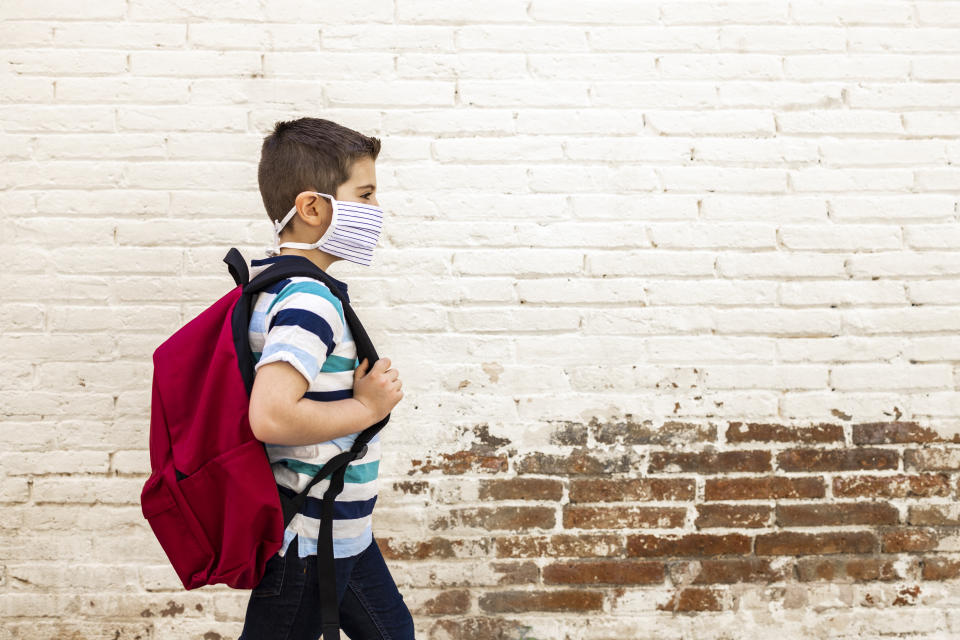COVID-19 vaccines may not be recommended for children initially, says the CDC
Children may be the last group to get the vaccine for COVID-19 when they become available, according to vaccine guidelines updated by the Centers for Disease Control and Prevention on Wednesday.
The guidelines state that “at first, COVID-19 vaccines may not be recommended for children. ... In early clinical trials for various COVID-19 vaccines, only non-pregnant adults participated.”

Dr. Yvonne Maldonado, an epidemiologist and infectious disease specialist at Stanford University, explains why. “It is important that safety data are accrued in adult trials before vaccines or other therapeutics are tested in children,” she tells Yahoo Life.
Having kids vaccinated last may pose a “risk that children will be more likely to be infected if the rest of the population has higher levels of herd immunity,” explains Maldonado. “Children may also be likely to be sources of infection at school and daycare. However, it is important to demonstrate safety of vaccines before wide-scale introduction of vaccines in children.”
However, NPR reported on Tuesday that Pfizer, one of the makers of a coronavirus vaccine candidate, got approval from the Food and Drug Administration this week “to enroll children as young as 12 years old in its COVID-19 vaccine trial.”
And today, CNN reported that the drug manufacturer will now move forward with testing the vaccine on children. On its website, Pfizer stated that “by doing so, we will be able to better understand the potential safety and efficacy of the vaccine in individuals from more ages and backgrounds.”
Dr. Robert Frenck, director of the Vaccine Research Center at the Cincinnati Children's Hospital (one of several coronavirus vaccine testing sites in the U.S.), told CNN that his team will start vaccinating teenagers ages 16 and 17 this week, followed by adolescents ages 12-15 years old.
In a May 2020 press release issued by the Cincinnati Children’s Hospital, Frenck explained that the “prospective vaccine works by having our body make a piece of the virus called the spike protein. The body then makes antibodies to the spike protein designed to protect people against COVID-19 should they be exposed to the virus.”
Frenck explained that study participants “will not be given the whole virus, making it impossible to get COVID-19 from the vaccine.”
Once vaccines are approved — possibly as soon as the end of this year — the new CDC guidelines point out that there may be a “limited supply” available at first. But the agency adds that the supply will increase over time. “The plan is to have several thousand vaccination providers available so no one will have to travel far to be vaccinated, whether it’s at your doctor’s office, retail pharmacy, hospital, or federally qualified health center,” states the agency in its guidelines.
But Maldonado tells Yahoo Life that “frontline health care workers, other essential workers, including first responders” will more than likely receive the vaccine first.
Read more from Yahoo Life:
Here's how the CDC says you can celebrate Thanksgiving safely
Can wearing a face mask help 'generate immunity' from COVID-19?
Want lifestyle and wellness news delivered to your inbox? Sign up here for Yahoo Life’s newsletter.

